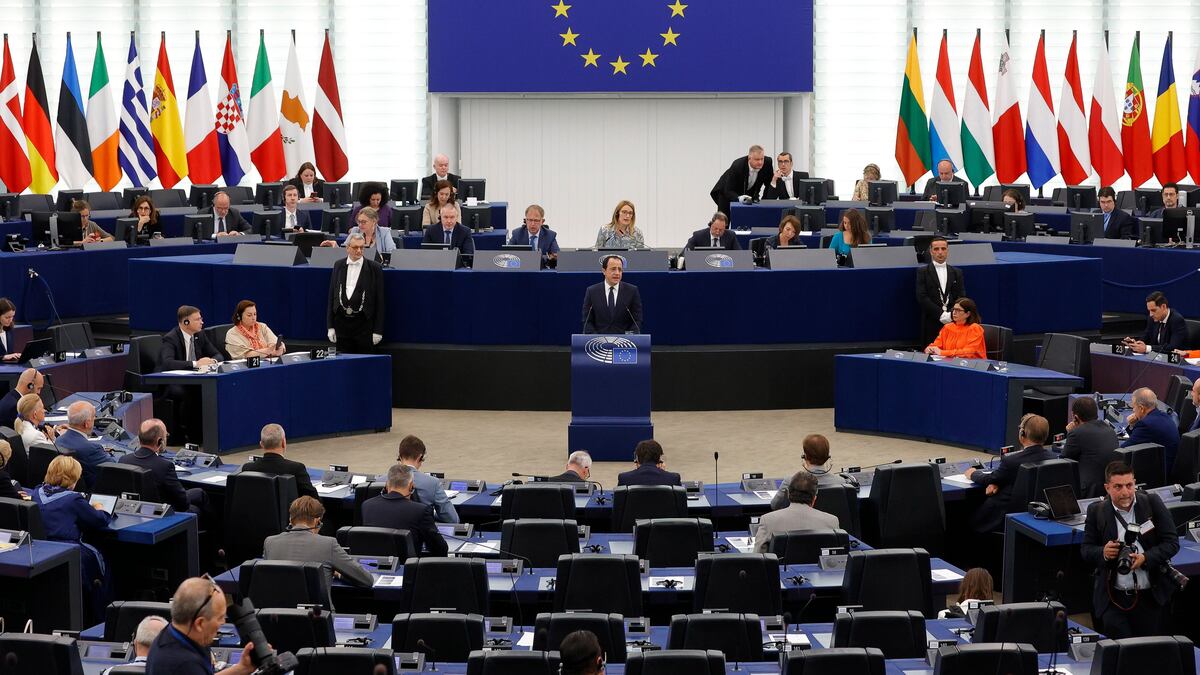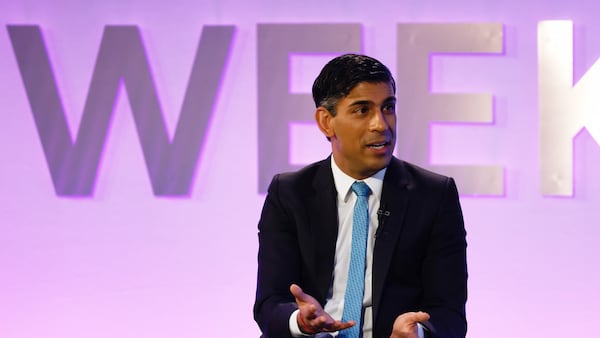- Leaked draft of the legislation shows that policymakers are weighing measures that may require drastic design changes to smart contracts.
- Proposal may cloud EU’s regulatory clarity as US crypto founders eye the bloc amid crackdown.
The latest draft of proposed legislation winding its way through the European Union looks like bad news for the blockchain industry. And there are only two weeks left to make possible changes.
As part of a broad data policy bill, the EU is weighing whether smart contracts, the cornerstone of DeFi, need to be designed in such a way that developers could step in and alter their transactions.
Core proposition
The provisions are meant to prevent accidental or fraudulent transactions. While EU lawmakers are not targeting blockchain technology per se, their actions could undermine one of the core propositions in crypto.
The development comes just as industry entrepreneurs are warming to the 27-nation bloc’s regulatory clarity as the US market is whipsawed by enforcement actions against Coinbase, Binance, and other players.
NOW READ: Users in $39b SafeDAO call for unlock of governance tokens: ‘For the love of God, let this pass’
The Data Act, Europe’s industrial data regulation project, is in its final and most opaque stage of negotiations where the EU’s three legislative institutions — Parliament, Council and Commission — defend their stance on the file.
A draft bill dated 8 June seen by DL News suggests that smart contracts would fall under the same definition that applies to computer programmes using “a sequence of electronic data records.”
‘These requirements should not apply to what the web3 industry calls smart contracts.’
— Tommaso Astazi
The definition is broad enough to capture blockchain-based smart contracts, regardless of how they are used. For industry advocates, this definition is more general than the one which was scrapped, and could cause more problems for blockchain developers.
“These requirements should not apply to what the web3 industry calls smart contracts,” said Tommaso Astazi, head of regulatory affairs for advocacy group Blockchain for Europe, told DL News, pointing out that these measures were designed to apply to connected devices.
Further changes
With the text under negotiation, it is still prone to further changes. EU policymakers are racing to reach an agreement on the Data Act by the end of June, which means that the coming two weeks will be the final chance to change things around.
Crypto trade associations have previously expressed their concerns to policymakers in the hope that the piece of the Data Act on smart contract regulation can be changed to prevent such an onerous development for DeFi.
Requirements for smart contracts under the Data Act include built-in features to interrupt or halt transactions — a design which negates the innovations of decentralised financial systems.
“If you need to have those requirements, then you cannot use a permissionless blockchain,” Astazi said.
NOW READ: How the SEC’s showdown with Coinbase will change the crypto market for everyone
Public blockchains such as those that support Bitcoin and Ethereum are open, decentralised networks that allow anyone to take part in the consensus mechanism, the process that validates and records transactions, and mints new tokens.
Yet the EU, which has been passing comprehensive data privacy and management rules for the last decade, may be about to inadvertently do serious damage to this innovation as it races to pass the Data Act.
Under the Data Act, smart contracts would also need to “be protected through rigorous access control mechanisms at the governance and smart contract layers.”
‘Trilogue’ meeting
There is strong incentive to finish negotiations by the end of June, when the European Council’s rotating presidency will switch to Spain from Sweden. A file getting stuck in this transition could cause further delay.
For now, the Council plans a session with experts who will take a closer look at outstanding technical issues in the text on 19 June, and then senior diplomats from the EU member states will need to approve it on 23 June.
A final “trilogue” meeting between the three institutions on June 27. After that, it would be very unlikely to see any changes in the political agreement reached in the text.
New rules
Only then can negotiations conclude at the end of June. If that goes successfully, the Data Act will need to be reviewed by legal experts over a two or three month-period and could be adopted as soon as September.
Last week, the EU celebrated its landmark new crypto rules, known as MiCA, as they were officially published as law. This marks the first major jurisdiction to pass a comprehensive framework for regulating crypto.
The Markets in Crypto-Assets regulation provides companies offering crypto services clear licensing requirements that will apply across the bloc, lays down consumer protection standards, and regulates stablecoin issuance. After the upcoming implementation period, all new rules will be in effect by the end of 2024.
NOW READ: Bitcoin’s ‘digital gold’ narrative sees renaissance — even as pro traders balk
As a result, Europe’s clear regulatory framework for crypto assets looks attractive to entrepreneurs compared with the drama of US regulatory enforcement action. But the Data Act’s new provisions are now clouding this picture, and that has crypto supporters worried.
“It does not make any sense to reduce that legal clarity now with text that is ambiguous at best, and risks taking away the achievements we reached with MiCA,” Astazi said, concerned that blockchain developers may be discouraged from coming to Europe.
The Data Act was actually designed to address the Internet of Things, a term for online interconnectivity between devices. As a broad piece of tech legislation, it has attracted lobbying and comments from an array of industry players. Smart contracts appear to have gotten lost in the shuffle.
“We understand why not enough attention was given to concerns of blockchain issues, but we have been engaging for months now,” Astazi said, “and the fact that they have not been addressed is concerning.”
Have tips on crypto regulatory policy? Contact the author at inbar@dlnews.com.



